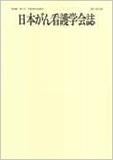Japanese
English
- 販売していません
- Abstract 文献概要
- 参考文献 Reference
要 旨
本研究の目的は,せん妄患者とのコミュニケーションを阻害する要因を明らかにすることにより,看護の力によるせん妄ケアを探求することにある.せん妄患者への応対場面の看護記録を看護師と患者の体験の記述として,記述現象学による分析を行い,その体験の意味を明らかにした.せん妄ケアに難渋した看護師の意識は安全管理責任に媒介され,せん妄症状とその対処に意識が向けられ,その結果,せん妄患者が“もの”として現れていた.せん妄症状に対処しようとすることは,患者その“人”ではなく,症状や言動を管理しようとすることであり,これらがせん妄患者とのコミュニケーションを阻害する要因であった.一方,看護師がせん妄患者の苦しみに意識を向け,その語りを促すというケアを実践することにより患者は落ち着き,その結果,薬を使わずに眠ることができた.せん妄患者の体験は,時間や場所,他者も自己の存在も不明になるという苦しみの体験であり,看護師が患者の苦しみに意識を向け,その語りを促し聴くことが,せん妄状態にある患者にとって安心と落ち着きを取り戻すケアとなった.がん医療の現場において,予測や予防,薬剤投与や身体抑制ではない「看護の力」によるせん妄ケアが示唆された
The purpose of this study was to explore the nursing care in delirium care by clarifying the factors that impede communication with delirium patients. Taking nursing records of dealing with delirium patients as descriptions of the experiences of the nurses and patients, we performed a qualitative analysis through descriptive phenomenology to clarify the meaning of their experiences. Since the consciousness of nurses struggling with delirium care is mediated by their responsibility for safety management, their attention is directed toward the symptoms and treatment of delirium. Hence, they unknowingly look upon delirium patients as “things” that cannot communicate verbally, making the patients' complaints appear meaningless. These factors impeded communication with delirium patients. On the other hand, when nurses practiced care by paying attention to the suffering of delirium patients and encouraging them to talk, they became calm and composed, and consequently were able to sleep without drugs. Since the experience of a delirium patient involves suffering in which the patient is confused about time, place, and the presence of oneself or others, the nurses' awareness of the patients' suffering and their encouragement by listening to their stories reassured and calmed the patients. In the field of cancer medical care, delirium care involving “the potential of nursing” that does not include prediction, prevention, medication, or physical restraint is strongly suggested.
Copyright © 2020, Japanese Society of Cancer Nursing All rights reserved.


